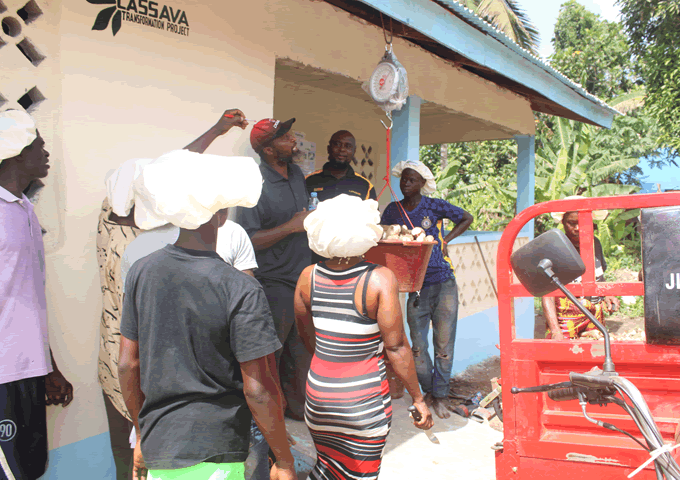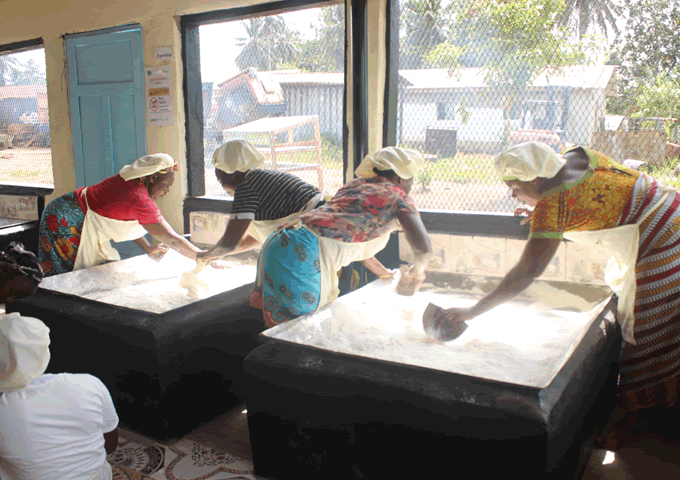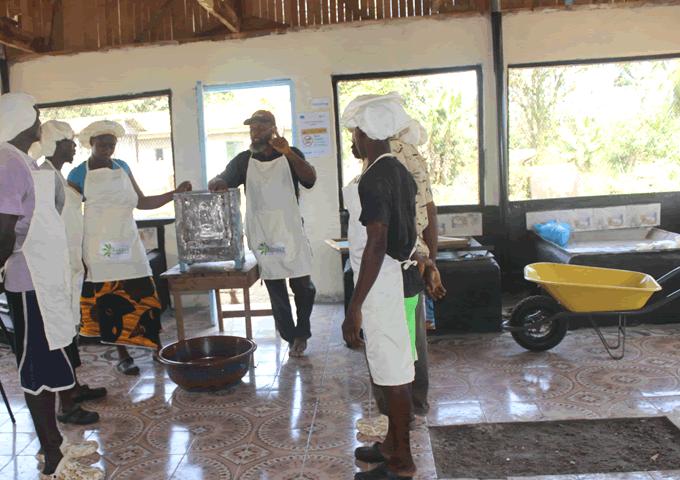Fresh cassava has a short shelf life of fewer than three days. As a result, processing is essential for producing value-added products. However, the lack of processing knowledge among processors has created several constraints in the processing of cassava products. Also, traditional processing methods coupled with the practice of utilizing mixed varieties in processing, affects product quality and uniformity.
To preserve the reputation of local processing enterprises and improve their participation in domestic and international markets, it is critical that processors process high-quality cassava products. In fact, the majority of the processors in the project landscape processed gari and fufu using traditional processing methods, according to the project baseline survey. As a result, the cassava products they produced were of poor quality. This had a negative effect on their sales.
 CASTRAP has trained 36 members from private cassava processing enterprises. This forms part of the continuation of CASTRAP technical support to enhance the processing and commercialization of the cassava value chain. Processors who participated in the training were the Panama Women for Future, Badio’s Farmer Cooperative, and the Lydia’s field project. The training involved how to process cassava into gari, super gari, fufu, food grade cassava flour, high-quality cassava flour (HQCF), starch, and other cassava recipes including bread and chips. In all, 22 females and 13 youth participated in the training.
CASTRAP has trained 36 members from private cassava processing enterprises. This forms part of the continuation of CASTRAP technical support to enhance the processing and commercialization of the cassava value chain. Processors who participated in the training were the Panama Women for Future, Badio’s Farmer Cooperative, and the Lydia’s field project. The training involved how to process cassava into gari, super gari, fufu, food grade cassava flour, high-quality cassava flour (HQCF), starch, and other cassava recipes including bread and chips. In all, 22 females and 13 youth participated in the training.
 The training also included the best food safety measures and quality assurance practices for members and staff of the processing enterprises. The training was conducted using competency-based approach to ensure that processors gained hands-on experience in processing starch, deepah quality gari, super gari, and using HQCF to make bread, as well as using the cassava peel to produce animal feed. The training, which started in Grand Gedeh on March 23 was completed in Sinoe County on April 4, 2023,
The training also included the best food safety measures and quality assurance practices for members and staff of the processing enterprises. The training was conducted using competency-based approach to ensure that processors gained hands-on experience in processing starch, deepah quality gari, super gari, and using HQCF to make bread, as well as using the cassava peel to produce animal feed. The training, which started in Grand Gedeh on March 23 was completed in Sinoe County on April 4, 2023,
One of the most important, and exciting components of the training was ensuring that the trainees could make food products from cassava to cover their breakfast and lunch. The trainees prepared cassava chips, super gari, and fufu for breakfast and lunch. This training is expected to continue in the project year three to cover additional 21 processors.




